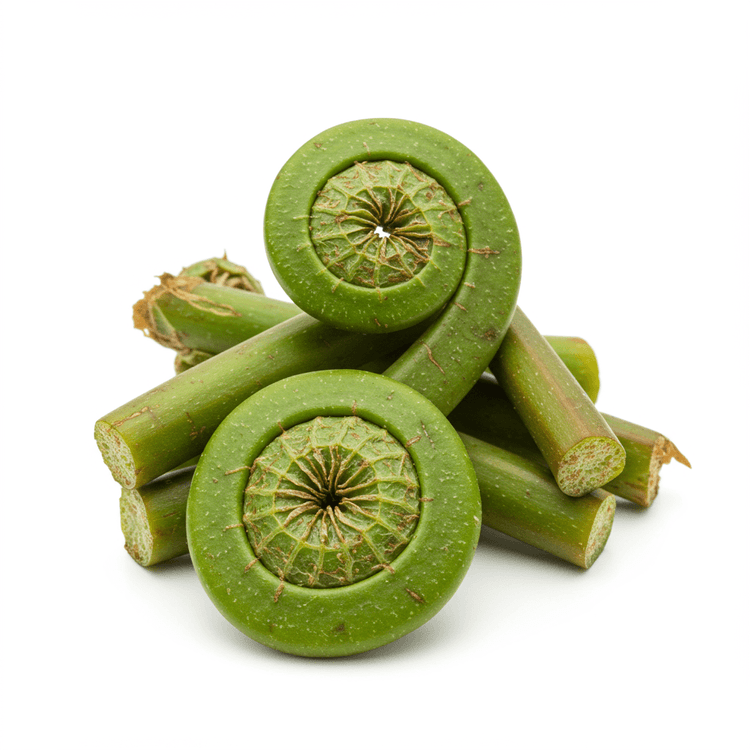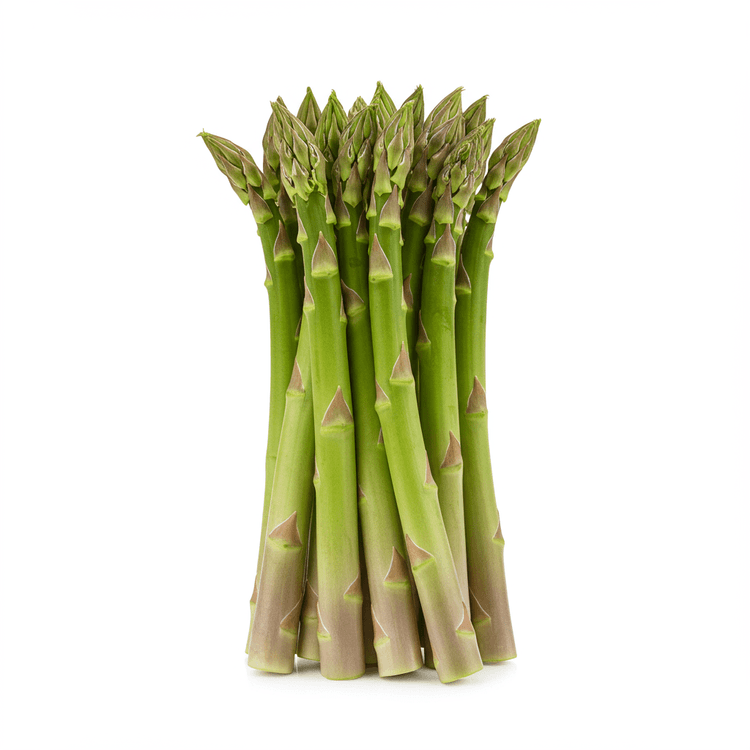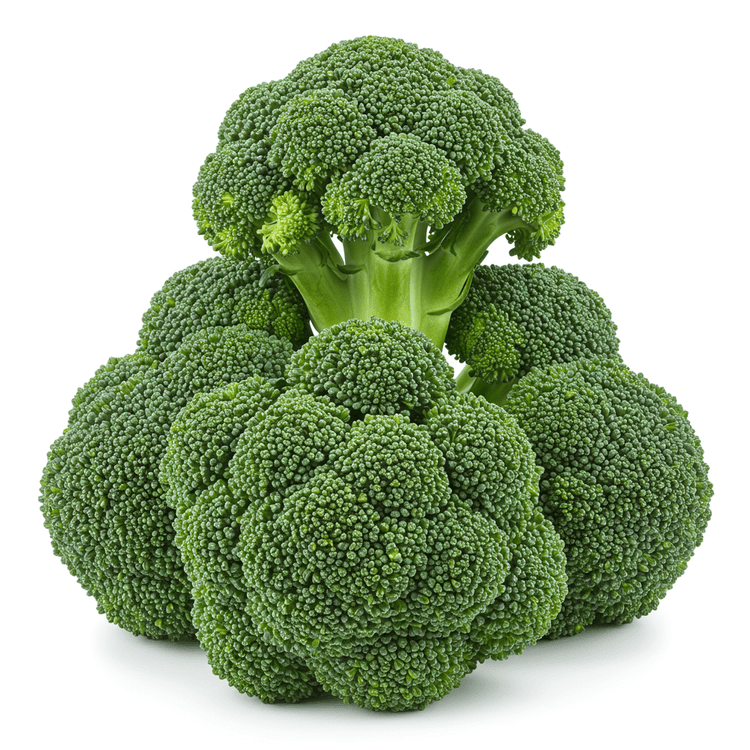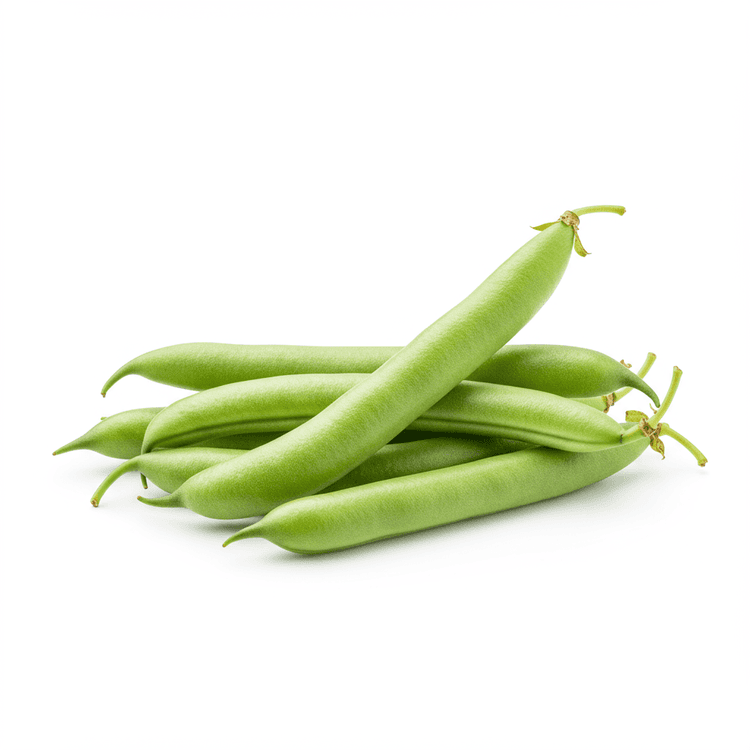
Fiddlehead
Fiddleheads are the coiled, young shoots of ferns, harvested in early spring before they unfurl. These emerald green, tightly wound spirals offer a unique, vegetal flavor, often compared to asparagus, green beans, or even a hint of artichoke. Fiddleheads boast a slightly crunchy texture when properly cooked, adding a delightful seasonal touch to dishes. Looking for fresh, spring vegetables? Try adding fiddleheads to your next meal for a nutritious and flavorful experience. Remember to always cook fiddleheads thoroughly before consuming to eliminate any potential toxins.
Common Uses
- Sautéed fiddleheads with garlic and butter are a simple and delicious side dish. Sautéing brings out their earthy flavor and tender-crisp texture; a quick and easy way to enjoy this springtime delicacy.
- Fiddleheads can be steamed until tender and then tossed with olive oil, lemon juice, and parmesan cheese. Steaming is a great way to retain their vibrant green color and delicate flavor.
- Pickled fiddleheads offer a tangy and crunchy addition to salads, cheese boards, or as a flavorful condiment. Pickling preserves the fiddleheads for longer enjoyment.
- Add blanched fiddleheads to stir-fries for a boost of spring flavor and a unique texture. Blanched fiddleheads add a nice pop of color and flavor to any stir-fry.
- Fiddleheads can be incorporated into creamy pasta dishes or risottos for a seasonal twist. Combine with other spring vegetables like peas and asparagus.
- Puréed fiddleheads make a vibrant green sauce for fish or poultry. The sauce has a delicate vegetable flavor and is a beautiful way to highlight seasonal ingredients.
Nutrition (per serving)
Nutrition (per serving)
Calories
34.0kcal (1.7%)
Protein
4.6g (9.2%)
Carbs
7.5g (2.73%)
Sugars
0.0g
Healthy Fat
0.3g
Unhealthy Fat
0.1g
% Daily Value based on a 2000 calorie diet
Nutrition (per serving)
Calories
34.0kcal (1.7%)
Protein
4.6g (9.2%)
Carbs
7.5g (2.73%)
Sugars
0.0g
Healthy Fat
0.3g
Unhealthy Fat
0.1g
% Daily Value based on a 2000 calorie diet
Health Benefits
- Good source of antioxidants to help protect cells from damage.
- Rich in vitamin C, boosting the immune system and promoting skin health.
- High in vitamin A, important for vision, immune function, and cell growth.
- Contains omega-3 fatty acids, supporting heart health.
- Provides dietary fiber, aiding in digestion and promoting gut health.
- Source of manganese, essential for bone health and metabolism.
Substitutes
Chefadora AI is here.
Experience smarter, stress-free cooking.
Storage Tips
Fiddleheads are highly perishable and should be used as soon as possible after harvesting or purchasing. Store unwashed fiddleheads in a plastic bag in the refrigerator, and use within a couple of days for optimal quality. For longer storage, blanch them in boiling water for a few minutes, then cool in ice water before freezing in airtight containers or freezer bags. Frozen fiddleheads can be stored for up to a year.
Marnirni-apinthi Building, Lot Fourteen,
North Terrace, Adelaide, South Australia, 5000
Australia




